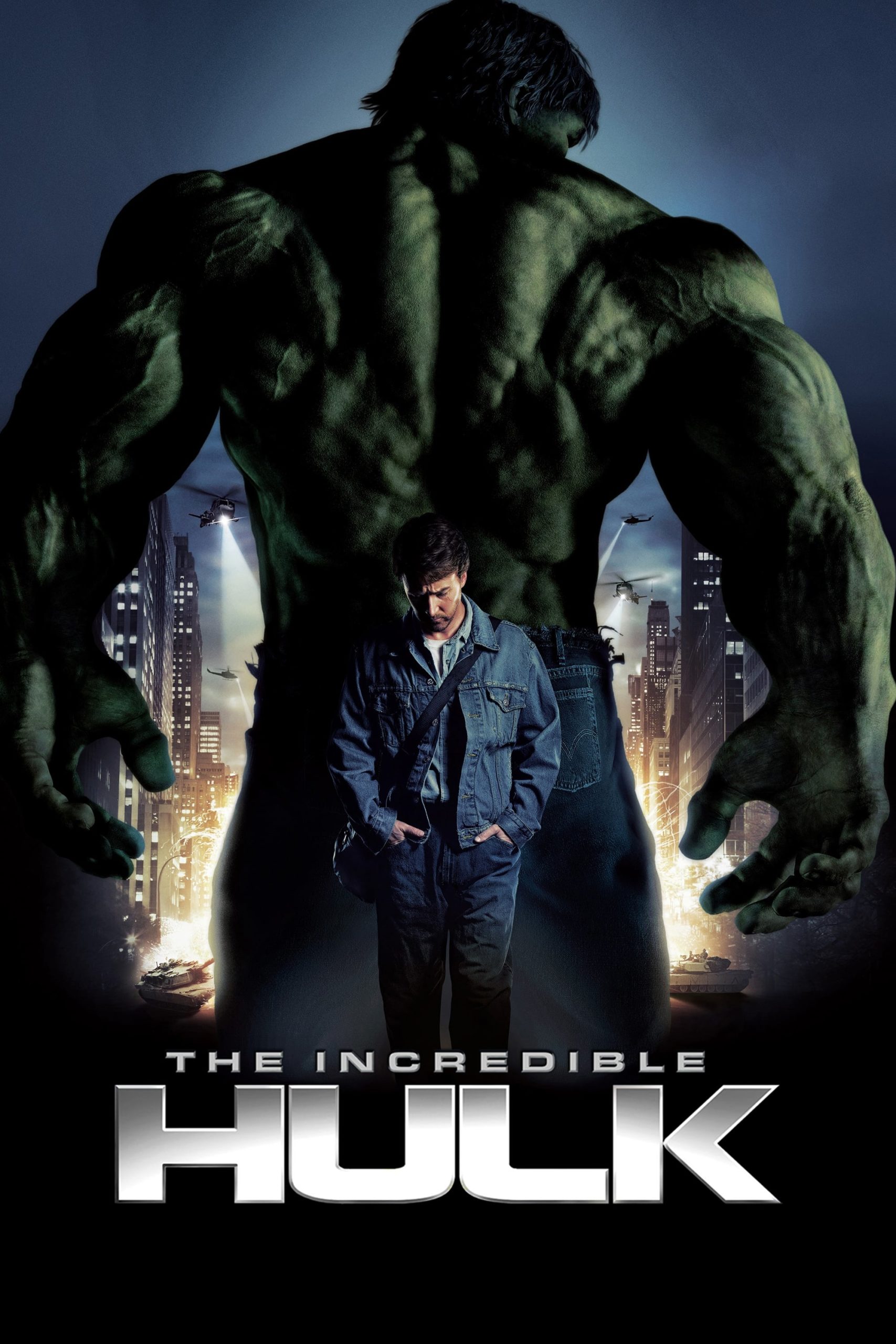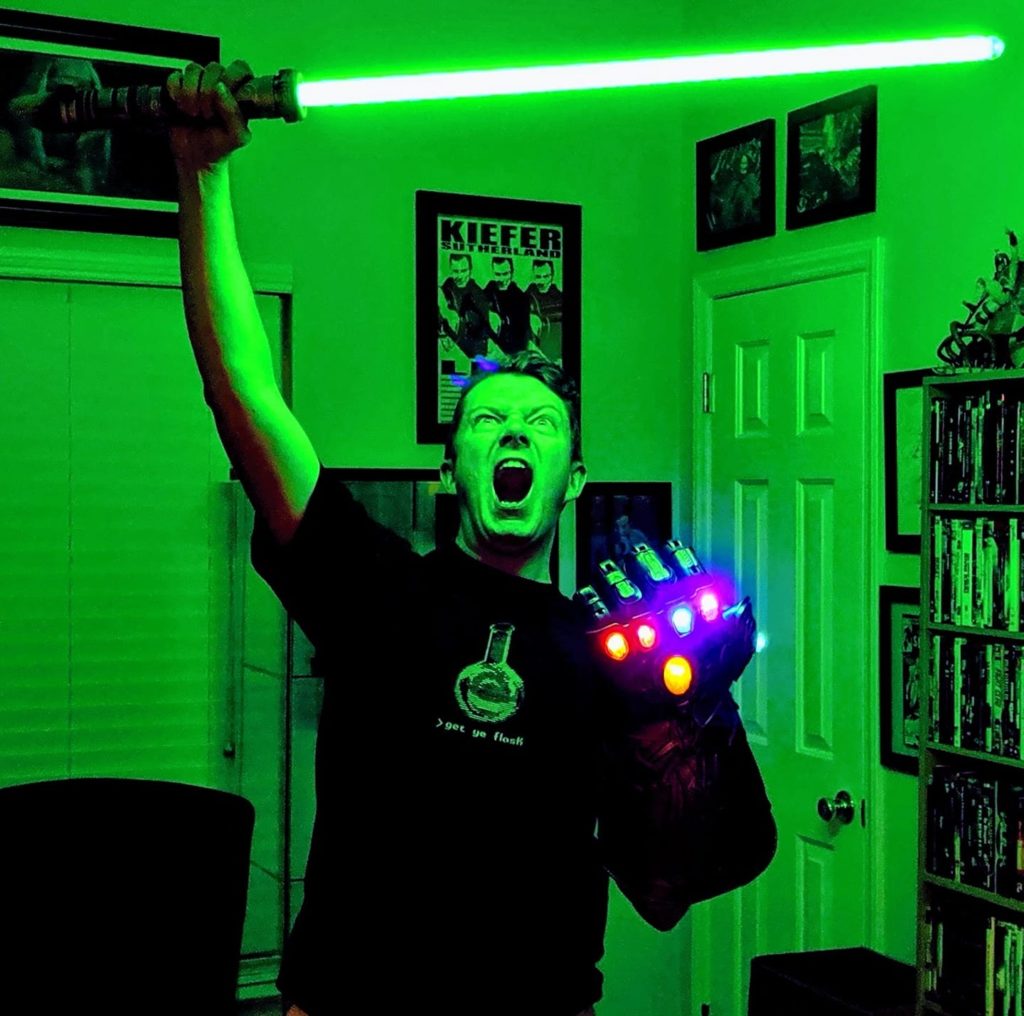
02 Jun Nerdy for Thirty #30: The Incredible Hulk
INCREDIBLE HULK
dir. Louis Leterrier, starring Edward Norton, Liv Tyler, John Hurt, and Tim Roth
In the grand scheme of the MCU, Louis Leterrier’s 2008 The Incredible Hulk feels like less than a footnote. A one-off movie with a cast that went largely forgotten, both in terms of performers and characters, for years to follow, Hulk’s appearance in 2012’s Avengers seemed to put to rest any dependency (or lack thereof) that the burgeoning cinematic universe might place on the second solo Hulk movie. And yet, with a number of references in Disney Plus’ recent She-Hulk: Attorney at Law series, this seems like a good time to reassess Leterrier’s movie (It’s a shame that it’s impossible to do on Disney+ itself).
Released just five years after Ang Lee’s much maligned attempt at the property (that I honestly give credit for at least trying something new, without fully committing to it), there was (and even sort of still is) some confusion as to exactly what The Incredible Hulk was supposed to be. Was it a sequel? Was it a reboot? Would it matter as long as they at least had Hulk, I dunno, fight something in this one? If it weren’t for the promise of a more unified approach to Marvel movies on the horizon, that last one might’ve mattered a bit more.
The Incredible Hulk opens in a way that it still took other major superhero franchises years to really figure out — you don’t need to dwell on the origin when your audience “gets it.” As famous as he is, I’d argue that Hulk is far less recognizable than Batman, Superman, or even Spider-Man, and we continued to get overly detailed origin stories for these characters that only seem to get more convoluted (see Joker, Man of Steel, and Amazing Spider-Man respectively) for years to come. And yet Hulk gets a rapid-fire, dialogue-free origin recap that plays out over the main titles, quickly getting the audience up to speed on who Banner is, where the Hulk comes from, who the supporting characters are and why they just won’t leave Hulk alone.
In fact, much of the first act is as efficient as the opening credits, quickly establishing Bruce’s new normal as a humble factory worker hiding out in Brazil. These early scenes hearken back to the last live action Hulk that people actually enjoyed, side-stepping any nods to Ang Lee’s divisive 2004 film and suggesting the “lone man walking the Earth” vibe of the Bill Bixby/Lou Ferrigno TV series.
And about those fight scenes, this movie also manages to deliver something its predecessor didn’t — a knock-down, drag-out monster fight in the middle of Harlem (the best Ang Lee’s film could muster in this regard, bogged down as it was by heavy-handed existentialism, was a fight between Hulk and some irradiated dogs). Hulk versus Abomination in the middle of a city? What more could audiences want?
The answer at this point, sadly, was Iron Man 2. In fact, the only thing that made Incredible Hulk remotely a “must-see” was the end credit scene (remember when those were a novelty?) that, just a month after Iron Man, hinted at the MCU to come.
This wouldn’t be the Bruce Banner audiences could truly root for; it would take a healthy dose of banter with Robert Downey, Jr. to finally get there. Still, Ed Norton does a competent job making Bruce a beleaguered loner longing for a life without his alter-ego. Liv Tyler was surely one of the best possible options for Betty Ross in 2008 (and if that doesn’t sound like it’s saying much, well, I think there’s a reason Kevin Feige hasn’t been in a big hurry to resurrect the character).
And yet he has proven willing to mine this movie for characters and performers over the years, and with good reason. William Hurt delivers a one-note, stogie-chomping Thaddeus Ross, whose main virtue in this film is that he’s played by a regularly brilliant actor. Tim Roth is wonderfully malicious as Blonsky, a British (by way of Russia) soldier on loan to the US to help hunt Banner only to become obsessed with the Hulk’s power after an encounter early in the movie. And all but forgotten was Tim Blake Nelson’s Samuel Sterns, the mysterious Mr. Blue (taking a cue from Bruce Jones’s early 2000’s run on the comic series), who brings fun energy to a relatively small role. The MCU was fortunate to have all of these performers, and it was a good idea to go back to retrieve them from the well for Captain America: Civil War, She-Hulk, and the upcoming Captain America: New World Order, respectively.
It’s a shame more people didn’t see this movie in 2008, because as an example of the first wave of superhero movies in the ’00s, it isn’t half bad. Given where the superhero genre has gone since, though, it just can’t hold up. Ultimately it falls prey to being one of the first MCU movies out of the gate, and one that was made before anyone realized what the MCU would become. The result is a movie that feels incredibly dated by modern superhero movie standards and lacks the effortless charm that made Iron Man the MCU’s catalyst.
Perhaps its biggest fault is that it doesn’t feel like it’s building to anything bigger than itself. Even that mid-credits scene feels like an afterthought. The result is that The Incredible Hulk is more like the last of the old than the first of the new. Stacked up against what came next (and even the one MCU movie that came before it), The Incredible Hulk’s biggest issue is that it feels inconsequential. And can there be a bigger sin in the MCU than that?
Review by Brian Martin


No Comments